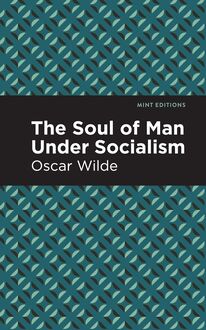-
 Univers
Univers
-
 Ebooks
Ebooks
-
 Livres audio
Livres audio
-
 Presse
Presse
-
 Podcasts
Podcasts
-
 BD
BD
-
 Documents
Documents
-
- Cours
- Révisions
- Ressources pédagogiques
- Sciences de l’éducation
- Manuels scolaires
- Langues
- Travaux de classe
- Annales de BEP
- Etudes supérieures
- Maternelle et primaire
- Fiches de lecture
- Orientation scolaire
- Méthodologie
- Corrigés de devoir
- Annales d’examens et concours
- Annales du bac
- Annales du brevet
- Rapports de stage
La lecture à portée de main
Vous pourrez modifier la taille du texte de cet ouvrage
Découvre YouScribe en t'inscrivant gratuitement
Je m'inscrisDécouvre YouScribe en t'inscrivant gratuitement
Je m'inscrisEn savoir plus
Vous pourrez modifier la taille du texte de cet ouvrage
En savoir plus

Description
Originally serialized while author José Mármol lived in exile in Montevideo, Amalia: A Romance of the Argentine (1851) became a symbol of Argentine national identity following the defeat of brutal dictator Juan Manuel de Rosas in 1852. Mármol, a leading critic of the Rosist regime, used autobiographical details to compose this masterful story of romance and political resistance, elevating the personal to the level of the national without losing sight of dissidents’ everyday struggles.
Amalia follows two lovers brought together by political repression during the violent regime of caudillo Jaun Manuel de Rosas. Eduardo, a dissident forced into hiding, finds safety at the home of the beautiful Amalia. Protected by Amalia and her cousin Daniel, Eduardo grows weary of living in constant fear of the Rosist death squads stalking the streets of Buenos Aires, and longs for a day when liberty and justice will set him free. Despite their blossoming romance, Eduardo and Amalia know they face mortal danger, and that every decision they make will come with the risk of discovery. Despite these hardships, the two persevere.
Amalia remains a timeless work of Latin American fiction from a leading figure of the Romantic era. This professionally designed edition of José Mármol’s Amalia: A Romance of the Argentine is a classic of Argentine literature reimagined for modern readers. Add this beautiful edition to your bookshelf, or enjoy the digital edition on any e-book device.
Sujets
Informations
| Publié par | Mint Editions |
| Date de parution | 21 juin 2021 |
| Nombre de lectures | 1 |
| EAN13 | 9781513287614 |
| Langue | English |
| Poids de l'ouvrage | 2 Mo |
Informations légales : prix de location à la page 0,0500€. Cette information est donnée uniquement à titre indicatif conformément à la législation en vigueur.
Extrait
Amalia
A Romance of the Argentine
José Mármol
Amalia: A Romance of the Argentine was first published in 1851.
This edition published by Mint Editions 2021.
ISBN 9781513282596 | E-ISBN 9781513287614
Published by Mint Editions®
minteditionbooks.com
Publishing Director: Jennifer Newens
Design & Production: Rachel Lopez Metzger
Project Manager: Micaela Clark
Translated by: Mary J. Serrano
Typesetting: Westchester Publishing Services
C ONTENTS P REFATORY N OTE I NTRODUCTION I. T REACHERY II. T HE F IRST D RESSING III. T HE L ETTERS IV. T HE D INNER H OUR V. C OMMANDANT C UITIÑO VI. V ICTORICA VII. S IR J OHN H ENRY M ANDEVILLE VIII. A N A NGEL AND A D EMON IX. O NE OF D ANIEL ’ S A GENTS X. I N WHICH THE M AN WITH THE B AMBOO C ANE M AKES H IS A PPEARANCE XI. F LORENCIA AND D ANIEL XII. P RESIDENT S ALOMON XIII. T HE W HITE R OSE XIV. S CENES IN A B ALLROOM XV. D ANIEL B ELLO XVI. S CENES IN A B ALLROOM —C ONTINUED XVII. A FTER THE B ALL XVIII. D OÑA M ARÍA J OSEFA E ZCURRA XIX. T WO OF A K IND XX. P ROLOGUE OF A D RAMA XXI. A R ESTLESS N IGHT XXII. C ONTINUATION OF THE P RECEDING XXIII. O F H OW T HINGS ARE R EAD THAT ARE NOT W RITTEN XXIV. H OW W E D ISCOVER THAT D ON C ANDIDO R ODRIGUEZ R ESEMBLES D ON J UAN M ANUEL R OSAS XXV. T HE T WO F RIENDS XXVI. A MALIA IN P RESENCE OF THE P OLICE XXVII. M ANUELA R OSAS XXVIII. C ONTINUATION OF THE P RECEDING XXIX. T HE S OLITARY H OUSE XXX. T HE O FFICER OF THE D AY XXXI. C ONTINUATION OF THE P RECEDING C HAPTER XXXII. C OUNTRY , L OVE AND F RIENDSHIP XXXIII. D ON C ÁNDIDO R ODRIGUEZ A PPEARS AS HE A LWAYS A PPEARS XXXIV. P YLADES A NGRY XXXV. T HE S MUGGLER OF M EN XXXVI. T HE C HIEF OF THE N IGHT - WATCHMEN XXXVII. T HE L AUNCH XXXVIII. T HE F EDERAL P ATROL XXXIX. O F F ORTY ONLY T EN XL. E NGLISH S ANCTUARY XLI. M R . S LADE XLII. H OW D ON C ÁNDIDO WAS A R ELATION OF C UITIÑO XLIII. T HE W ARNING OF THE S OUL XLIV. T HE B RIDAL V EIL XLV. T HE N UPTIAL C OUCH E PILOGUE
P REFATORY N OTE
I n this picture of Argentine life during the reign of terror instituted by the Dictator Rosas, Daniel, the hero of the story, represents the spirit incarnate of the best elements of the Argentine people struggling for democracy and freedom, in opposition to militarism and autocracy. It is in fact a social study of a period in Argentine history during which were laid the foundations of the greatness of a people whose soul is revealed in these pages in the vivid and intense emotions and feelings of actual life, portrayed with a master’s art by the hand of an actor in its events who himself experienced the feelings he portrays, as event succeeds event, as defeat succeeds victory, victory defeat, but where courage never fails and where confidence in the ultimate triumph of Freedom and of Right is never lost. And over all is spread the magic glamour of deathless love, redeeming the suffering and the bitterness of defeat and exalting and ennobling the vision of a victory still to be won, but to be surely won.
M. J. S.
I NTRODUCTION
A mong the political chiefs of South America Juan Manuel Rosas, the Argentine ruler, for the unscrupulousness of his aims and the ruthlessness of his methods in seeking to attain them stands out a sanguinary figure. Succeeding General Lavalle in 1835 as Governor with extraordinary powers, of Buenos Ayres, his rule was for the country a reign of terror; and the blood-red color which he chose for his own was emblematic of the policy of persecution against his political opponents, the Unitarians, or Unionists, which guided it.
Nor were the political enemies of Rosas, in Buenos Ayres, the only victims of his sanguinary policy. More than one sudden death among the Federal leaders before he finally became chief of the party was rightly, it is believed, attributed to him; and foreign residents were so frequently the objects of his persecution as to draw forth repeated remonstrances from England and France. His policy was one of isolation for the Republic, this policy extending even to its commercial relations with other countries; and for the country itself of retrogression and ignorance. Freedom of speech was interdicted, individual rights were disregarded; and so characteristic of Federalism (in consonance with the tastes of Rosas who, although of noble family, had little culture or breeding), was a contempt for the amenities of life that a regard for these came to be considered a distinctive mark of Unitarianism.
This despotic rule of Rosas had continued for a little more than five years when the opening events of the Romance take place, Rosas having been since his assumption of power not only practically Dictator of the Province of Buenos Ayres, but practically also arbiter of the destinies of the whole Argentine Republic, the other provinces, most of which he had brought under his control, whether by force, fraud or guile, acknowledging tacitly the supremacy of Buenos Ayres. Ambitious of exercising a like control over Uruguay, and eager to gratify his hatred of Rivera, the successor of Oribe, the exiled President of the latter country, for the favor shown the Unitarian refugees in Montevideo, he had, in July, 1839, invaded the territory of that Republic with an army of 7000 men. The defeat of this army and the invasion of Buenos Ayres by the Unitarian chief, Lavalle, which followed, seemed to hold out a hope to the Unitarians of happier days for their country through the downfall of the tyrant. But this hope was for the time and for years to come, destined to prove illusory. General Lavalle was defeated; the Unitarian chiefs of the interior were relentlessly persecuted and a price was set on their heads; and General Oribe, at the head of 14,000 men, again invaded Uruguay and laid siege to Montevideo. But the tide slowly turned. France and England intervened in favor of Uruguay. The French fleet, which had more or less continuously blockaded Buenos Ayres, since 1838, was joined by the English fleet, and both fleets combined began the blockade of Buenos Ayres, on September 18, 1845. The siege of Montevideo, however, was still maintained and Rosas refused to accede to the terms of the allies. The treaty of peace which he finally concluded with them, in November, 1849, by its favorable terms to the Dictator, in the end brought about the overthrow of Rosas. The navigation of the La Plata, Uruguay and upper Paran á rivers was left in the control of Buenos Ayres to the exclusion of the interior provinces, not excepting even the river provinces of Corrientes and Entre-Rios. The dissatisfaction of the excluded provinces was profound, and General Urquiza, Governor of Entre-Rios, issued a manifesto on May 1, 1851, calling on the other provinces to rise against the dictator. An alliance, offensive and defensive, was formed with Brazil and Uruguay, and Urquiza, aided with money and men by the former country, marched against Oribe’s army in Uruguay. Oribe was defeated, the siege of Montevideo was raised, and Urquiza, reinforced by the troops of Oribe, who had abandoned their leaders after his defeat, marched against Buenos Ayres. The Dictator, then intrenched at Palerno and Santos Lugares, encountered the allied forces and was defeated by them at Monte Caseros, on February 3, 1852. Taking refuge on a British man-of-war he was carried to England, where he lived in retirement on an estate which he purchased near Southampton, until his death, on March 14, 1877.
I
T REACHERY
O n the night of the 4th of May, 1840, at half-past ten o’clock, a party of six men might be seen crossing the inner courtyard of a small house in the Calle de Belgrano, in the city of Buenos Ayres. On entering the hall which led to the street door and which was dark, like the rest of the house, one of the party stopped and said:
“We must not all leave the house together. There are six of us; let three of us go first, taking the opposite side of the street; a few minutes afterward let the other three follow, taking this side and let us all meet at the corner of the Calle de Balcarce.”
“A good idea.”
“Well, then, I will go first with Merlo and my friend here,” said a young man who wore a sword and who seemed to be the youngest of the party, indicating by a gesture the man who had first spoken. And unbolting the door he opened it and muffling his face in his long blue cloak crossed to the opposite side of the street, accompanied by the two men whom he had designated and walked in the direction of the river.
A few moments later the other three men left the house and fastening the door behind them took the same direction, without crossing the street.
After walking a short distance in silence the companion of the young man with the sword said to him, while the one whom they had called Merlo preceded them, muffled in his poncho:
“It is a sad thought, my friend, that this is perhaps the last time we shall ever walk through the streets of our native city. We are leaving it to join an army that is to see hard fighting, and Heaven alone knows what fate may befall us in the war.”
“I feel only too deeply the truth of what you say,” returned the other, “but the step we are taking is unavoidable. And yet,” he continued, after a few moments’ silence, “there is one person, at least, who is of a different way of thinking from us.”
“What do you mean?”
“That is to say, who thinks that it is our duty as Argentines to remain in Buenos Ayres.”
“Notwithstanding Rosas?”
“Notwithstanding Rosas.”
“And that we ought not to go join the army?”
“Just so.”
“Bah! Then he must be either a coward or a Mashorquero.” 1
“He is neither the one nor the other. On the contrary, he is brave to rashness, and there is not among all the young men of our day one who has a nobler or purer heart than his.”
“And what would he have us do, then?”
“He would have us all remain in Buenos Ayres,” returned the young man with the sword, “because the enemy we have to fight is in Buenos Ayres, and n
-
 Univers
Univers
-
 Ebooks
Ebooks
-
 Livres audio
Livres audio
-
 Presse
Presse
-
 Podcasts
Podcasts
-
 BD
BD
-
 Documents
Documents
-
Jeunesse
-
Littérature
-
Ressources professionnelles
-
Santé et bien-être
-
Savoirs
-
Education
-
Loisirs et hobbies
-
Art, musique et cinéma
-
Actualité et débat de société
-
Jeunesse
-
Littérature
-
Ressources professionnelles
-
Santé et bien-être
-
Savoirs
-
Education
-
Loisirs et hobbies
-
Art, musique et cinéma
-
Actualité et débat de société
-
Actualités
-
Lifestyle
-
Presse jeunesse
-
Presse professionnelle
-
Pratique
-
Presse sportive
-
Presse internationale
-
Culture & Médias
-
Action et Aventures
-
Science-fiction et Fantasy
-
Société
-
Jeunesse
-
Littérature
-
Ressources professionnelles
-
Santé et bien-être
-
Savoirs
-
Education
-
Loisirs et hobbies
-
Art, musique et cinéma
-
Actualité et débat de société
- Cours
- Révisions
- Ressources pédagogiques
- Sciences de l’éducation
- Manuels scolaires
- Langues
- Travaux de classe
- Annales de BEP
- Etudes supérieures
- Maternelle et primaire
- Fiches de lecture
- Orientation scolaire
- Méthodologie
- Corrigés de devoir
- Annales d’examens et concours
- Annales du bac
- Annales du brevet
- Rapports de stage




















